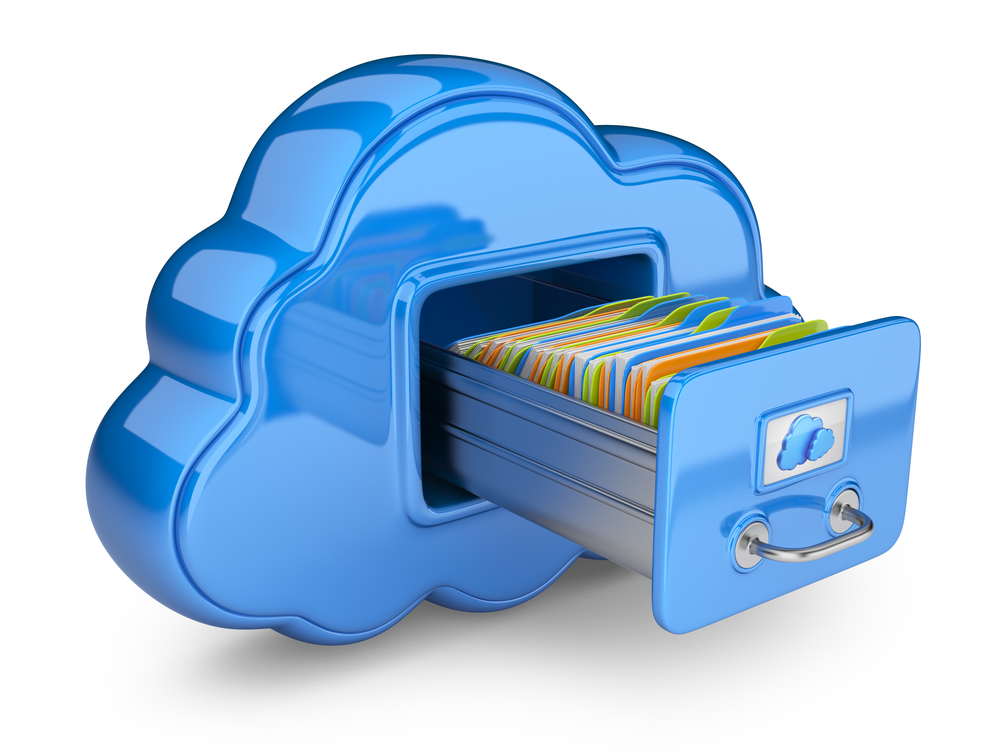Take advantage of a $60 billion market opportunity.
According to research firm Markets and Markets, the enterprise content management (ECM) opportunity has grown to some $60 billion (from $23 billion five years ago), with the global pandemic serving as a boon to accelerate growth. The need for remote access grew as COVID-19 spread over the past three years, forcing more people to work from home. Another area of office automation exposed by the pandemic has been remote hiring and employee onboarding, which “is not going away,” predicted Jim Roberts, president of DocuWare Corp.’s American subsidiary.
Taylor Grosso, director of channel sales in the Americas for Laserfiche, believes dealers should consider selling document management and ECM software because scalable technology portfolios offer ongoing opportunities for service revenue and lucrative integrated enterprise deployments. His firm develops digital storage and automation to simplify document, records, and business process management (e.g., accounts payable, case management, and HR onboarding). “Our compliance solutions go beyond search abilities and some metadata,” said Grosso.
Selling software is a different game for sales reps accustomed to primarily hawking hardware products. What do dealers need to know to sell an ECM/doc-management solution effectively? Some pain points are revealed organically by prospects, noted Grosso, such as the need to limit output and increase throughput. “If processing a contract takes three weeks, that can severely limit a company’s sales capacity,” he said. Also, lost documents can mean big trouble in the event of an audit. He added if infection threats from malicious software such as ransomware are a concern, the fact that ECM is backed up and secure is a major selling point.
Preconfigured ECM Software Benefits
Preconfigured software often fits the bill for many common-use, document management/ECM cases, empowering smaller organizations to digitize and automate central business processes such as invoice processing and employee management. Canned solutions can be deployed in hours, including training, said Michael Frattini, senior vice president of operations at Square 9 Softworks. Other ready-to-use packages may take a few days to implement. Competitor DocuWare offers over-the-counter office automation tools that it calls Preconfigured Cloud Solutions. Such tools in the cloud can help replace manual, paper-based, and error-prone workflow with fast, adaptable, and automated processes.
Custom Configured ECM
Larger customer environments typically require more robust platforms, such as an MS SQL database server, explained Square 9’s Frattini. (The primary function of the Microsoft relational database management system is storing and retrieving data as requested by other software application that may run either on the same computer or on another computer across a network.) One common frustration in business offices and accounting departments is the inability to pay on time. What are the firm’s accounts-payable procedures? Dealer reps need answers to basic inquiries: Which forms are employed? How are vendor invoices approved? How are payments confirmed? How findable are signed documents?
DocuWare claims its customized invoice processing cuts manual data entry by up to 95%. In addition to automating workflow and exception handling, users can reclaim early-payment discounts. Digital invoices with intelligent indexing can be securely stored for instant retrieval. Preconfigured workflows are used for approval routing, or end-users can employ straight-through processing to help expedite payments and keep teams on track.
Alabama-based soft drink producer/bottler Buffalo Rock sought a more efficient document imaging solution for its accounts payable team. “We needed it to integrate with our Oracle software and Outlook,” reported Vincent Holmes, the company’s document imaging manager. “After reviewing five different companies, we chose DocuWare because it had what we needed.”
There are ways in which dealer representatives can tell what level of ECM customers, like Buffalo Rock, require. “Sales reps need to take a prescriptive approach to uncover pain points,” said Frattini. To find out where it hurts, “they need to do more than show tools in a toolbox,” he advised. Dealer reps should come armed with questions that uncover need, such as:
- Has the prospect already implemented a digital transformation initiative?
- Are they looking for payment of off-site document storage?
- Do they have on-site inventory, too?
- Are they printing unnecessarily?
According to Square 9’s Frattini, office technology dealers have unique leverage. “When it comes to print volumes and utilization, where is it all going?” he asked. Once qualified, most customers need their hands held far beyond order fulfillment and the implementation phase, which is why he contends ongoing support becomes critical.
Laserfiche’s Grosso concurred that learning about a prospect’s ECM and governance strategies is essential. “Find out what CMS [content management system] or ERP [enterprise resource planning] software they are using,” he urged.
Vendor Assistance
Dealer reps do not need to go too deep into the weeds when it comes to knowing about software, observed Grosso. Vendors like Laserfiche can help with the details. “Reps should know the benefits of a good ECM solution, but digital transformation is a journey,” he said. Beyond marketing collateral (case studies and talk tracks), webinars, and tech support, channel-centric vendors offer best-of-breed training programs for their latest ECM products.
Square 9 posts a curriculum online for basic, front-end training (www.square-9.com/resources/education/). For higher-level customers, DocuWare’s Roberts said, “there needs to be an overlay in the middle to assist with the technical part of the solution. That’s where firms like his come in, to do the proverbial heavy lifting.
DocuWare brings in regional sales directors as part of its standard partner offering. “We prefer to augment our online Document Sales Advisor Training Program with an in-person presence,” said Roberts, who has work roots planted deep in process automation for the manufacturing sector, where doing more with less is par for the course. “By going out and helping people sell in the field, customers get to see our guys in action and vice versa.”
Similarly, Laserfiche has partner/territory managers who engage with customers to plug into their sales processes. “Our territory teams find out where hardware is installed and conduct customized demos using a customer’s documentation and process steps,” said Grosso. “That way, it’s easier for them to understand the efficiencies.”
For DocuWare’s regional sales directors, the tag-team approach could amount to as many as four or five trips each quarter, covering multiple days per visit in the pre- and post-COVID world. “Creating a foundation for learning is a journey,” noted Roberts, adding that the end goal is to transfer enough knowledge for customers to run document management autonomously and create their own destiny.
Unearthing the ECM Opportunities
When it comes to sales strategies for uncovering opportunities, many industry experts favor a horizontal approach. “Just look at the marketplace,” urged DocuWare’s Roberts. “These processes are common in almost all businesses – take incoming invoice processing/scanning and optimization, for instance, or cybersecurity.”
Laserfiche’s Grosso agreed, citing HR onboarding and accounts receivables as two crossover areas. He added that there are vertical-market opportunities, too, but warns of nuances and differences between sectors such as education, financial, government, and manufacturing. According to Grosso, Laserfiche’s enterprise solutions are more granular and comply with government agencies such as the U.S. Department of Defense (DOD) and the Securities & Exchange Commission (SEC).
The Educational Vertical Market
Click here to view a video about how Square 9 Softworks is helping schools digitally transform in the cloud.
Top 5 Elements of ECM
- Capture documents digitally
- Store documents in a digital repository
- Retrieve documents, regardless of device or location
- Automate document-driven processes
- Secure documents and reduce organizational risk
Budget Benefits
Economic justification is a common objection to the doc-management/ECM proposition: Prospects may wonder (sometimes aloud) whether it is “a luxury or a need,” noted Michael Frattini, senior vice president of operations at Square 9 Softworks. Does the software solution outweigh the expense of storing, managing, and moving documents?
“We teach our reps to ‘reduce to the ridiculous,’” he said, by taking large amounts and breaking down costs over three-year time spans. Labor reduction factors into the equation. “There are no employee benefits or PTO [personal time off] associated with Square 9’s automated solutions.”
Demonstrating value is critical to successfully selling custom-configured software solutions. Seeing is believing, so showing people the ways in which problems can be solved is a big part of what Laserfiche, Square 9, and other software developers do. To comprehend the potential return on investment (ROI), prospects need to experience using the software, said Jim Roberts, president of DocuWare Corp.’s American subsidiary. And understanding their needs and pain points requires consultative engagement on the part of dealers.
Still, many customers push back, insisting their processes are being handled by this or that business application, observed Taylor Grosso, director of channel sales in the Americas for Laserfiche. “But the goal should be system integration and filling in the blanks with a content strategy that ties things together and makes them more efficient.”
For example, most customers appreciate a nice, clean dashboard for electronic forms set-up. Some may use another doc-management system they’ve outgrown, exceeding basic capture, catch and retrieve requirements. “We convert these all the time,” said Grosso, noting that as many as 50% of Laserfiche’s implementations are replacement projects.
Another frequent objection revolves around security and compliance. “Many people have concerns about the ‘cloud’ and operating with no [computer] infrastructure,” explained Square 9’s Frattini. “We can spin up a server in a matter of minutes, but questions about confidentiality and breaches must be dealt with. We check those boxes because Square 9’s cloud solutions are both SOC [system and organization controls] and HIPAA-certified” by the American Institute of CPAs and by Congress’s Health Insurance Portability and Accountability Act.
Laserfiche assures customers that its cloud solutions are highly secure, featuring enterprise-level authentication. The firm supports customizable authentication features such as single sign-on (SSO) with Active Directory Federation Services (ADFS), native password controls, and two-factor authentication for internal and external users.
For data in transit over public networks, Laserfiche Cloud uses TLS encryption, and AES-256 encryption is utilized for data at rest, including backups. Automated backups are encrypted and secure, while detection systems monitor for potential intrusions and unauthorized changes.
“In Laserfiche Cloud, it’s easier for us to determine where requests are in the process at a glance, and the transition itself was fairly easy,” reports Andrew McElrath, strategic project manager at casino-management company Mille Lacs Corporate Ventures.
Find a Free eBook for The Document Management Software Buyer’s Guide from Laserfiche here.
4 RTW Questionnaires
As part of its return-to-work (RTW) procedures, a private school near Chicago is electronically recording and tracking COVID questionnaire responses using Google Forms, which is among the simpler methods of administering such surveys. (The software is included in the free, web-based Docs Editors suite.) Clicking and dragging misplaced files within Microsoft Windows’ folders is another basic solution that “might be sufficient for smaller organizations,” suggested Michael Frattini, senior vice president of operations at Square 9 Softworks. However, the search function can become cumbersome as file names and sub-folders grow in complexity, he warns.
Some RTW rules are more advanced, requiring online, web forms, perhaps, or even the ability to input information via a mobile (phone) app. Managing such e-documentation and content at the enterprise level is all about efficiency for Jim Roberts, president of DocuWare Corp.’s American subsidiary. As part of its RTW portfolio, DocuWare last year began offering a COVID-19 screening e-form and workflow that employs quick response (QR)-code technology to facilitate contactless, compliant visitor and employee check-in/check-out.
Each e-form can be customized and configured to any new or existing system—and according to a given company’s preferred screening process. It ensures compliance with Center for Disease Control (CDC) guidelines, which advise all businesses to implement and update as necessary a plan that is specific to each workplace.




